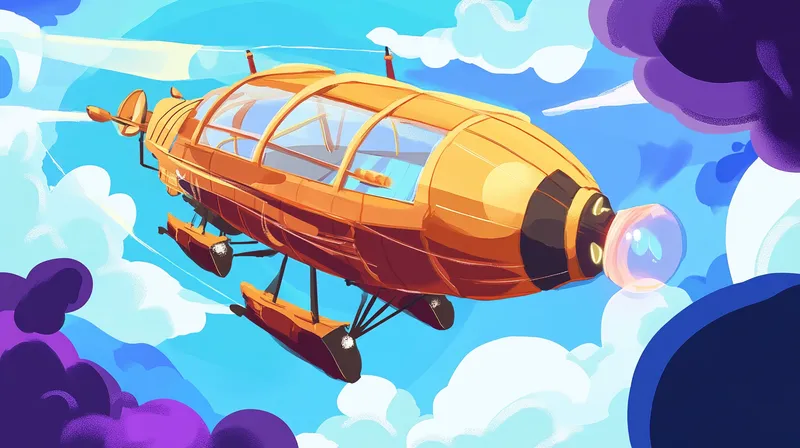In a word, the future of computer science is promising.
In a few more words, the future of computer science is promising, but with challenges to overcome.
Let’s talk about those challenges. Recently, a swath of tech companies implemented a hiring freeze in response to chilling markets. Others took a step further and slashed positions entirely. Add to the mix the (potentially) growing threat of AI. Perennially, coders and programmers worry that AI will take over their jobs, generating programs and parameters with the click of a button. Plus, a surge of no-code products aimed at non-experts has gained popularity.
A computer science degree used to mean a six-figure salary and guaranteed career prospects. Now that the tech bubble seems to have shrunk (if not yet popped), AI is looming, and no-code is more popular than ever, what does that mean for the future of computer science? Will there still be computer science jobs in the future? If it’s still present, how will computer science change in the future?
The future of computer science as a degree choice 🔗
If you’re a soon-to-be computer science student, your main question is: what’s the future for CS students? Is CS still worth doing as a degree?
In my humble opinion, yes. A computer science education is no longer just a gateway to a computer science job. Just like knowing how to balance a budget or cook a fried egg, computer science is slowly becoming an integral part of the world around us.
Is it necessary to know how algorithms work? Sometimes. But even if you aren’t writing algorithms for a living, it’s still massively helpful, and I wouldn’t be surprised if it became necessary in the future. A computer science degree teaches you other things worth knowing: the hardware behind computers, and an understanding of a wide variety of coding languages and their methodologies. When I worked in customer success or marketing, both very “soft” jobs, having this experience was a massive boon to my career.
Every company will have some kind of tech core in the future. Getting a CS degree will be useful in any field.
Now, computer science is still a tough degree. But its future is as solid as ever. With only a 5% unemployment rate and the 4th highest median starting salary, it’s still a great choice for anyone who leans toward math and analytics.
The main thing worth noting is that while a computer science degree is a solid bet for the future, it’s no longer the only path to the future. As async computer science boot camps become more comprehensive and degrees become more expensive, there may reach a point at which it’s best to learn computer science by yourself without relying on a university degree. After all, over 30% of computer scientists today don’t even have a Bachelor’s degree.
The future of computer science as a career 🔗
Whether or not you decide to clinch a computer science degree, you probably want to be sure about computer science’s future as a career.
Frankly, every field experiences job uncertainty. Computer science careers aren’t immune. Look at journalism - these folks, despite being exquisitely qualified, face layoffs and pivots pretty much every month. In chilly markets, computer science is better off than most career tracks.
However, even with freezes and layoffs and potential AI replacements, there are still 700,000 open computer science jobs. And as of August 2022, only 5% of high school students study computer science every year. In other words, the high demand and low supply of computer scientists is still a problem for companies worldwide. Computer scientists are not immune to career troubles, but they’re a heck of a lot more resilient to employment market wobbles and misfires than most other professionals.
Plus, the ongoing demand means that your computer science salary in the future is likely to be high. Today, computer science has a reputation for being a well-paid career. In the future, computer scientists are projected to have the second-highest pay rise in any subject group (5.2%), surpassed only by mathematicians (5.4%).
Employability of computer scientists in the future? Confirmed. Computer scientist salary in the future? Likely to increase. Overall, computer science as a career is in one of the strongest positions across the labor market.
The future of computer science as a field 🔗
Now let’s get into something a little more esoteric. Cast your mind into your metaphorical crystal ball and consider: is computer science the future? Will computer science change the future? And, if so, is computer science good for the future?
A quick case study: this morning, I made a TikTok-famous recipe for breakfast. I scrolled on Instagram to entertain myself. I googled a question and clicked on the top answer. I ordered a dress from Amazon. All of these daily activities are fueled by computer science.
Computer science currently dictates the world around us. Supply chains, content algorithms, and even job application systems are designed, built, and refined by computer scientists. Computer science isn’t just our future, it’s our present.
Computer science becomes more important as the economy and every facet of our lives become more dependent on tech. In the future, as machine learning, deep learning, neural networks, and natural language processing become more sophisticated, I’d expect computer science to establish an ever-firmer foothold on our reality.
As a field, I expect new technology - new languages, frameworks, or even more advanced concepts like AI - to be explored and developed in computer science. This relentless pace of technological advances, more than anything else, means that computer science as a field will be relevant for many years into the future.
But there’s a lot more to change that nobody can predict. Today, if you’re a computer scientist, you could become a web developer, a cyber security expert, a database administrator, a data scientist, a business analyst, and much more. Half of those jobs didn’t exist twenty years ago. If they did, they were a very different job. In ten years, it’s tricky to say what computer science jobs will look like.
The only guarantee is that you’ll have them. The future of computer science is very bright, whether you’re choosing it as a degree, a career, or just contemplating it as a facet of our human existence.
Computer science has a long and fruitful future ahead. 🔗
As a degree, as a career choice, and as a field, computer science is a wonderful option. Let’s briefly discuss the challenges I mentioned before:
- Hiring freezes/layoffs. It’s true that the tech world is at its chilliest point, but as I mentioned, there’s still a deficit of computer scientists out there in the world. Even if you don’t get hired at a big-name company, you’re almost certain to find work. Plus, recessions are historically good times to found startups. You may not get a job at Google, but you may get a job at the next Google.
- AI is approaching. AI pretends to threaten every field, but it’s not a real threat: it’s a tool. In marketing, writing, sales, science, pharma, and yes, computer science, AI will help make your job easier. It will not take your job.
- The no-code movement. Firstly, computer science encompasses a heck of a lot more than just programming languages. Second, my humble opinion is that no-code is not a long-term viable solution. Computer scientists need reproducibility and open-source products to collaborate and demonstrate their work. No-code might be good to get up and running, but in the long term, coding will prevail.
If you’re at a critical junction at school or in your career and you’re wondering about the future of computer science, here’s your answer: computer science will be just fine. If you invest in learning those skills, you will be, too.



